
Produced by Zhang Yimou and directed by Lü Xing, the drug-themed suspense drama Snow Labyrinth once again showcases a northeastern backdrop—Lü Xing’s previous work, the highly acclaimed short drama No Certainty in Crime, also set in Northeast China, helped spark a trend in suspenseful miniseries.

Snow Labyrinth poster
The story of Snow Labyrinth is set in 1997. In the small northeastern city of Halan, peaceful lives are shattered by the emergence of a new drug, methamphetamine. The local police precinct gathers a team of elite officers from different departments to form a drug enforcement task force, with criminal investigator Zheng Bei (played by Huang Jingyu) serving as the captain. To supplement the team's limited knowledge of drug enforcement, they also invite drug research expert Gu Yiran (played by Wang Ziqi) from Guangdong to join.
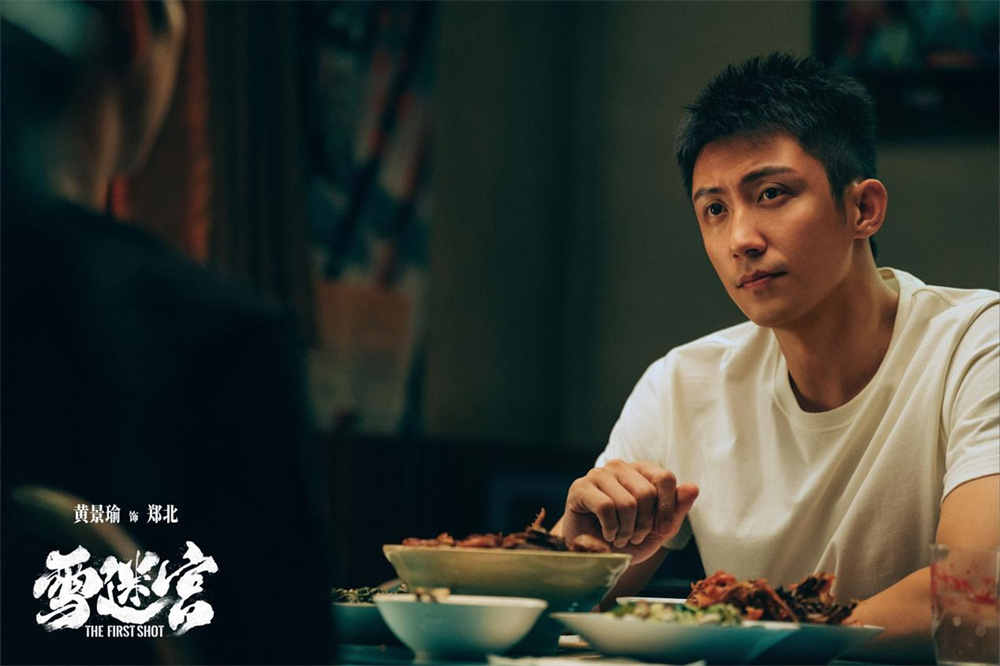
Zheng Bei (played by Huang Jingyu)

Gu Yiran (played by Wang Ziqi)
Despite a strong production team and cast (which also includes Zhang Yu in a leading role), Snow Labyrinth sparked considerable controversy upon its release. The main point of contention was how the series diverges so significantly from traditional northeastern suspense stories, with many feeling it contained an excessive amount of family-oriented subplots. Is this really still a suspense drama?
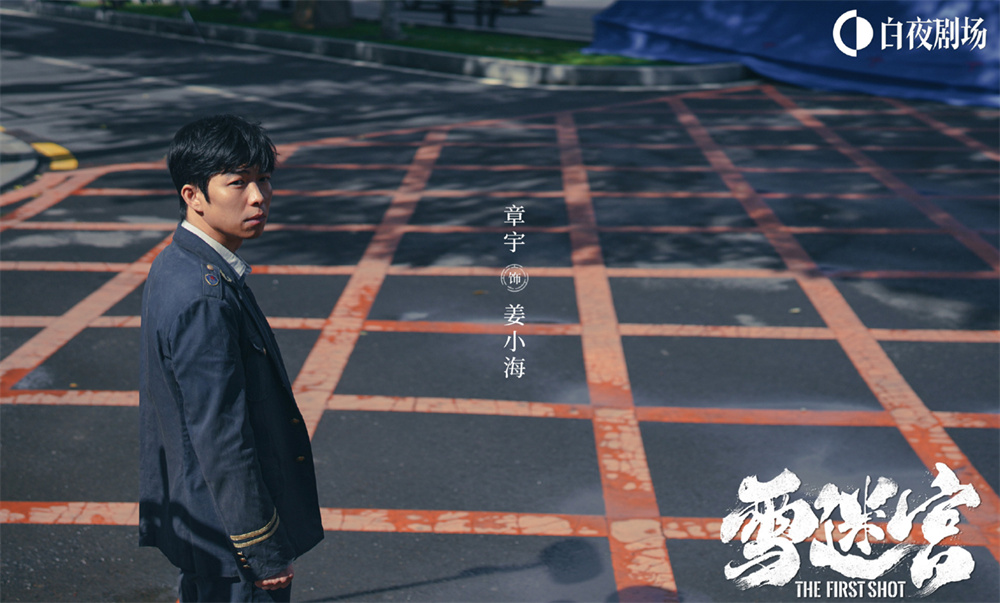
The ambiguous Jiang Xiaohai (played by Zhang Yu)
From a sheer episode count perspective, the drug enforcement storyline in Snow Labyrinth is not particularly complex, yet it spans 32 episodes. In contrast, No Certainty in Crime has 12 episodes, and Long Season has 16. The additional episodes of Snow Labyrinth are primarily devoted to depicting various everyday scenes.
Therefore, audiences may need to adjust their expectations: Snow Labyrinth is an atypical northeastern suspense drama and, indeed, an unconventional suspense drama overall.
From Daylight Fireworks to No Certainty in Crime, Dual Exploration, and Long Season, these suspense stories set in Northeast China have shaped the aesthetic expectations of many viewers regarding this genre: they typically feature narratives set in the cold winter, utilize the unique climatic elements of the northeast such as snow and ice, and deploy dilapidated factories and streets to create a suffocating yet enigmatic atmosphere, providing a perfect stage for suspenseful plot developments; they combine the industrial landscape of 1990s Northeast China with criminal incidents to portray the complexities of northeastern society through intricate character development and gripping plot advancement; and they delve into complex character relationships and profound psychological portrayals, revealing the intricacies of human nature and the cruelty of societal transitions.
If we move away from a northeastern focus, the current mainstream trend in crime suspense miniseries seeks extreme sensory stimulation, often manifesting as violence, intense conflicts, and large-scale revelations of humanity’s darker sides; especially since modern audiences have a fast-paced lifestyle, these stories commonly employ a compact narrative structure with rapid pacing, high information density, and numerous twists to deliver intense audiovisual enjoyment within a short time frame.
The 'atypical' nature of Snow Labyrinth lies in its pervasive slice-of-life elements.
While previous suspense dramas featured family-centered scenes, they were minimal. In Snow Labyrinth, the balance between daily life and suspense is almost even, if not leaning more towards the quotidian. The series contains the cold atmosphere typical of Northeast China, displays significant crime, showcases various brutal acts of violence, and amplifies the darker aspects of humanity, yet it also embraces the ordinary, fragmented, humorous, and warm aspects of life.
A significant portion of the slice-of-life aspect in Snow Labyrinth centers around the main character's experience of food. This drama can be seen as a grand showcase of northeastern cuisine, with scenes of groups gathered around tables enjoying local dishes featured in nearly every episode.
For instance, Gu Yiran, as a southerner in Halan, is given ample screen time to explore his culinary encounters with northeastern food.
Zheng Bei’s master, Xin Tiegang, prepares a large bowl of pork and vermicelli for the task force. Initially, Gu Yiran mistakes it for rice noodles, but as he keeps eating, his appetite grows, and he ultimately consumes three big bowls.
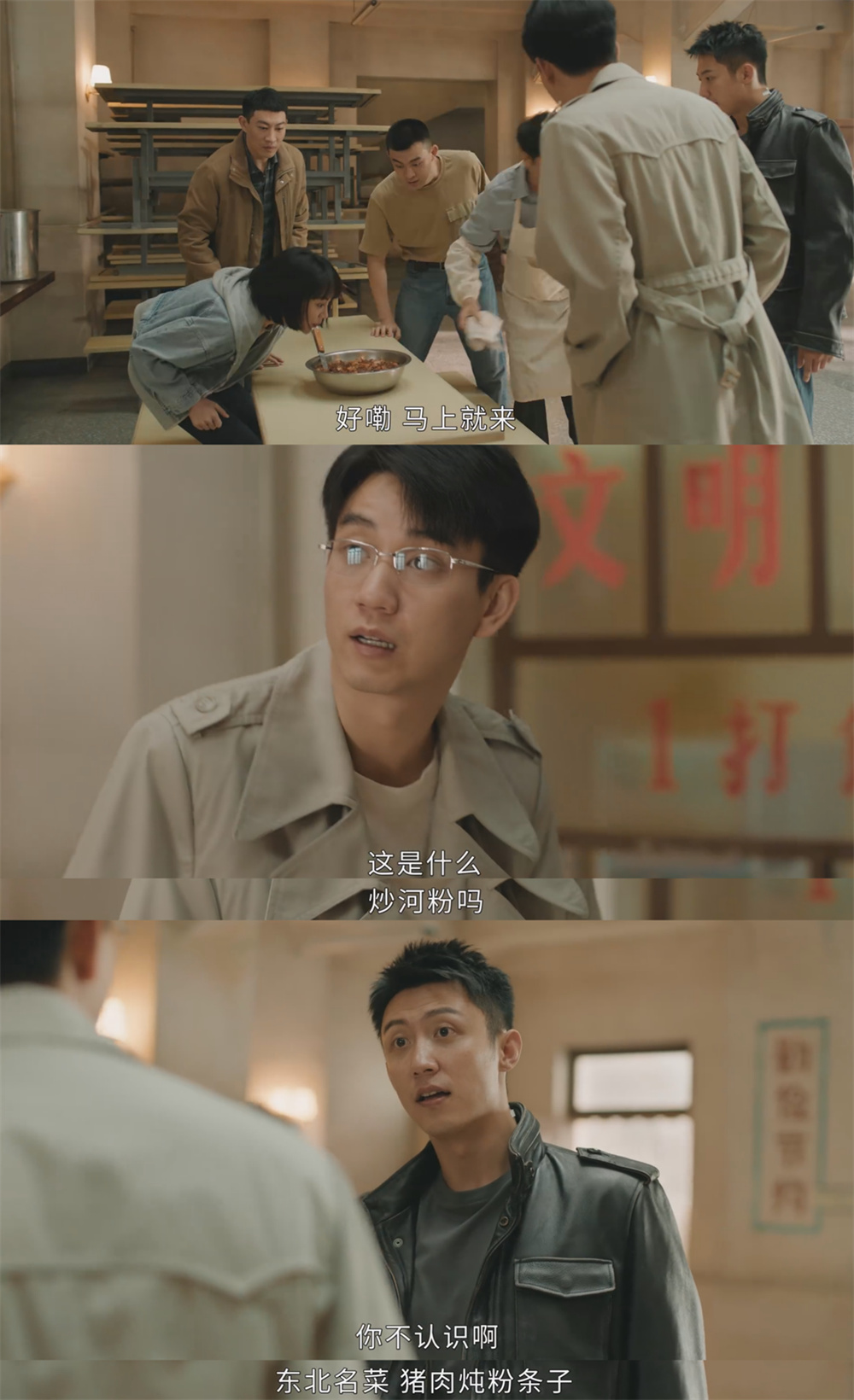
When Gu Yiran first visits Zheng Bei's home, where Zheng’s parents run a chicken skeleton restaurant, they treat him to their signature northeastern chicken, and Gu Yiran can’t help but praise it as delicious.
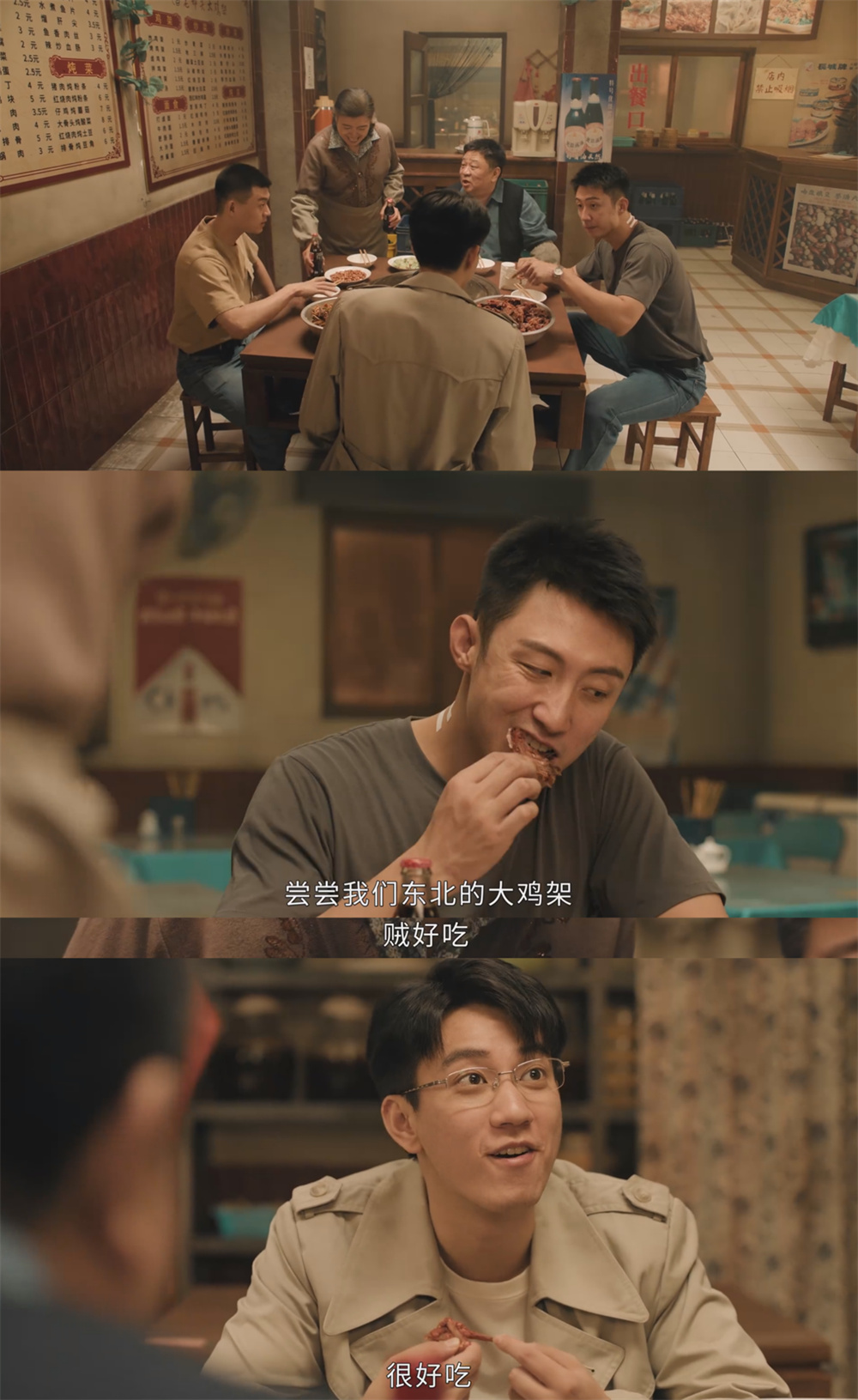
During Gu Yiran’s first dinner at task force member Ding Guozhu's home, Ding’s parents serve them a hearty portion of northeastern pork knuckle.
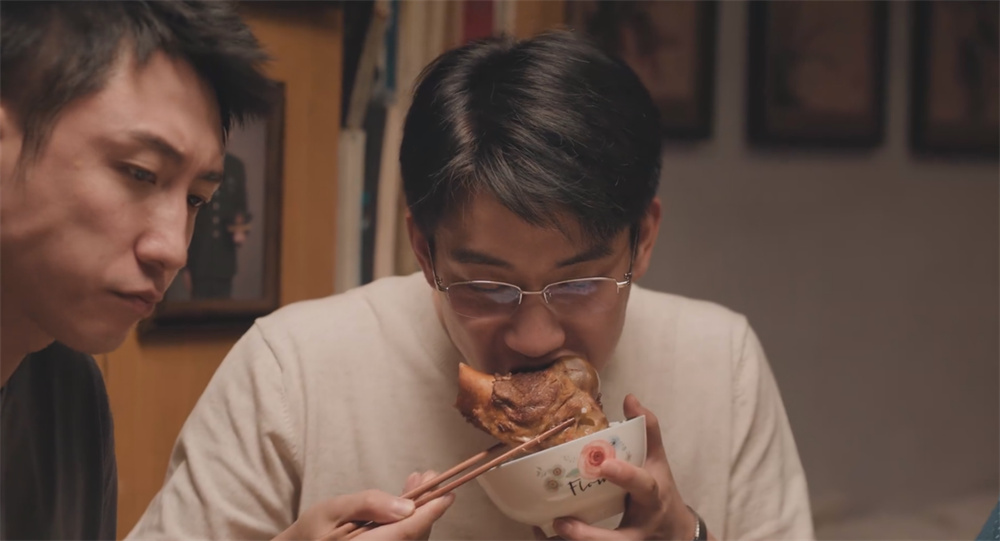
Even when Gu Yiran discovers the whereabouts of his father’s killer and follows him, the scene is set in a cold noodle shop...

Almost every episode features various 'eating' scenes, firstly reflecting northeastern culinary culture and painting a vivid picture of northeastern flavors and customs for viewers.
The numerous 'eating' scenes allow audiences to not only indulge in a 'visual feast' but also experience the warmth, enthusiasm, and love for life embodied by the northeastern people. For example, families portrayed in the drama such as Zheng Bei's, Ding Guozhu's, and Zhang Xueyao's are all depicted with love and sincerity, welcoming guests and friends with heartfelt hospitality. Each copious meal warms both the stomach and the heart, showcasing the generosity and sincerity typical of northeastern families.
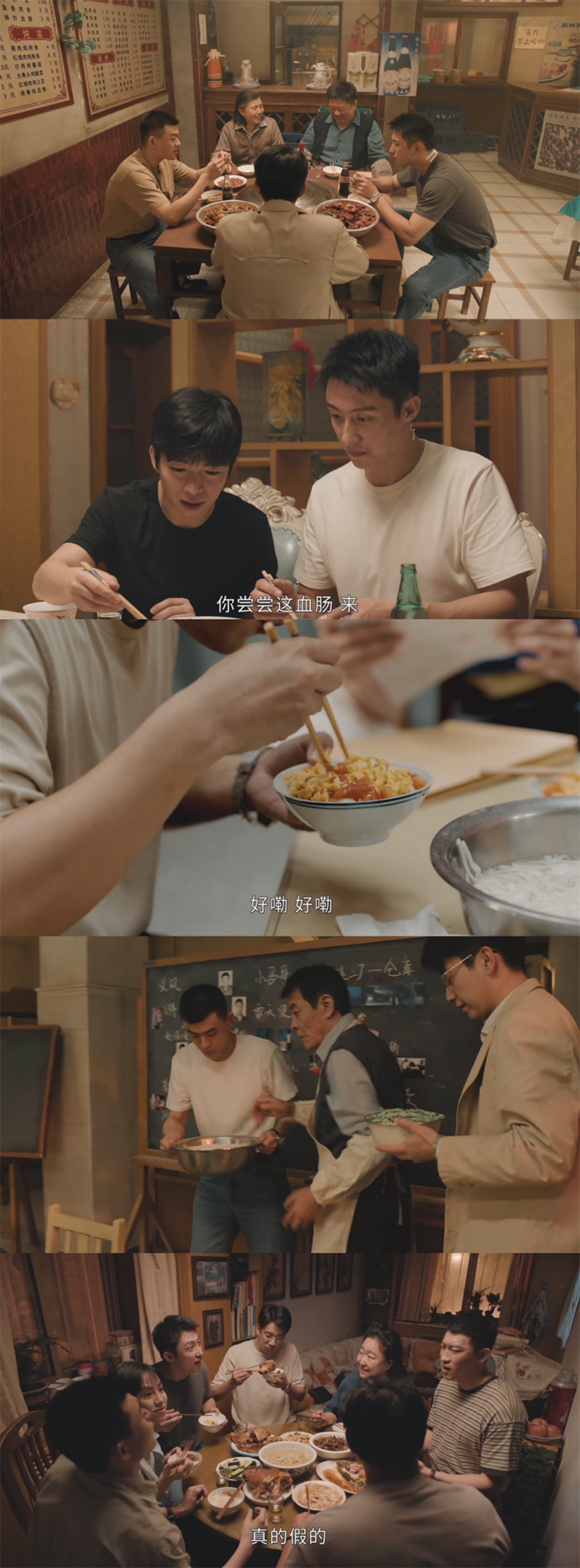
Scenes of eating abound in the drama
In addition to serving as cultural representations, various 'eating' scenes also carry the daily interactions of the protagonists. The task force of five members display distinct yet complementary personalities. Whether it's simple meals in the cafeteria or lavish dishes at family gatherings, sharing meals fosters communication and interaction among them, whether discussing cases or sharing jokes, allowing audiences to closely observe and understand the daily lives of these drug enforcement officers, revealing their unique and human sides.
In summary, the everyday details, emotions, and interactions centered around *eating* create a rhythm for Snow Labyrinth that distinguishes it from the mainstream suspense dramas currently available. It not only portrays the intense drug enforcement process but also vividly illustrates the day-to-day lives of the task force, gradually unfolding a living picture of Northeast life in the late 1990s, effectively balancing the drama’s bloody, chilling, and tense aesthetics.
Notably, numerous scenes capture the interactions among Zheng Bei, Gu Yiran, and Jiang Xiaohai around 'eating' (though their interactions aren't limited to the dinner table), resulting in a brotherhood that feels remarkably close. The creators' intentions are quite evident.

Zheng Bei and Jiang Xiaohai share a brotherly bond

After Zheng Bei's remark, Gu Yiran messes up his balloon darts
How effective is this approach? Will audiences accept it? To be frank, opinions vary.
The advantage lies in the clever merging of the logic-driven suspense narrative with the engaging and enjoyable daily life, creating a balanced rhythm that allows viewers to experience not just the cold and severe narratives typical of northeastern crime suspense dramas, but also the unique regional culture and human warmth of the northeast. As director Lü Xing puts it, they aimed to create a 'suspense drama that pairs well with a meal'; for fans of ship pairings (couples), the brotherhood depicted in the series might serve as a substitute meal.
However, the drawbacks are also apparent: while the blend of 'suspense + slice of life' enriches the narrative layers, the distribution of crime and suspense amidst the lengthy scenes of daily life results in a slower overall pace. Suspense information is released too slowly, and sometimes even drags on for two or three episodes without substantial forward momentum, leading to a sensation of disconnect; many viewers' expectations of a suspense drama do not align with the so-called 'meal companion' format; can 'eating' genuinely serve as a selling point for a suspense drama? What about those who want to see solid suspense?
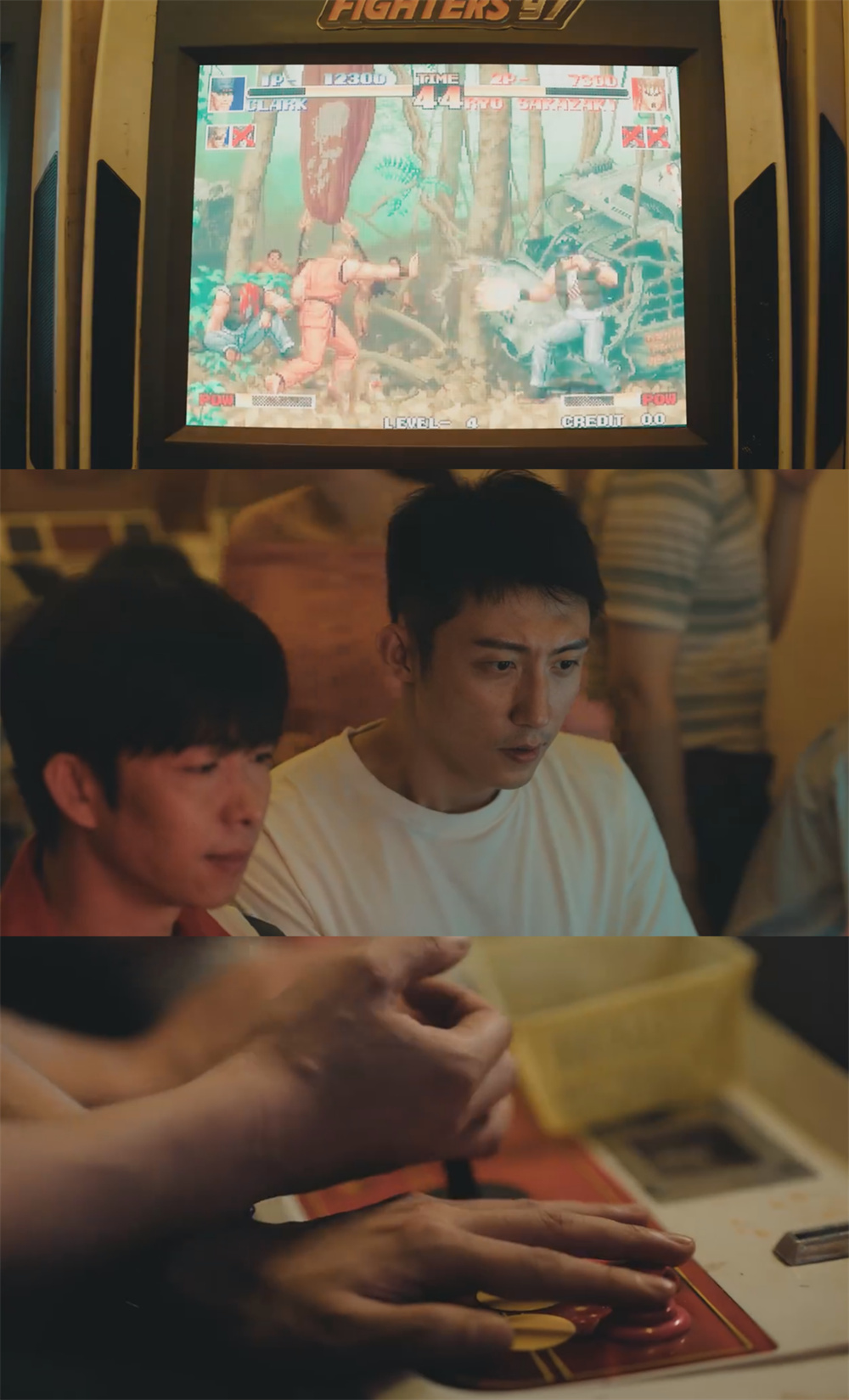
The drama features many similar shots, making it difficult to argue that they are unintentional
Taking a step back, if the goal is to make a suspense drama 'digestible', must it rely solely on piling up various inconsequential daily moments? In fact, Long Season also features plenty of northeastern delicacies: Wang Xiang prepares stewed beans and pickled vegetables for his deceased son Wang Yang in a dream, Wang Bei is treated to braised pork bone soup by Wang Xiang before his art exam in Beijing, and when thanking Gong Biao for medical assistance, Wang Xiang invites him to dinner with sweet and sour pork... These culinary elements are also 'digestible', but look at how high Long Season's narrative efficiency is.
Setting aside the slice-of-life aspects, the progression of suspense in Snow Labyrinth can only be described as standard.
The central mystery of the drama revolves around the source and distribution of the new drug (methamphetamine). The threat posed by meth in Northeast China—the pathways through which this new drug infiltrates the region, and the motivations and structures of the larger criminal networks behind it—becomes one of the key threads woven throughout the series.
The narrative does not reveal all clues from the outset; instead, it unravels pivotal information through the police investigation, leading the audience through a series of events—from the glass factory murder case to the capture of drug lord "Brother Hao," and to the death of drug kingpin Qin Yi—progressively guiding viewers deeper into the core of the story while sparking their curiosity at critical turning points, ultimately constructing the framework of the tale. For example, viewers initially believe Qin Yi is the principal drug lord in Halan, only to later discover that he is merely a middle-level member within a larger narcotics distribution network selling ecstasy, with a much more formidable figure orchestrating the meth operations behind the scenes.
In addition to the main storyline, the series intertwines multiple subplots, revealing unresolved mysteries for Zheng Bei, Gu Yiran, and Jiang Xiaohai, such as Zheng Bei's search for his long-lost "younger brother," Gu Yiran's investigation into his sister's death, and Jiang Xiaohai's background mystery. The outcomes of these plotlines are intricately linked to the overall drug case, causing them to intertwine. This portion could be described as adequate without exceptional merit.
The portrayal of the drug enforcement officers in the drama isn't particularly remarkable; for instance, Huang Jingyu has already played a multitude of such roles. The most discussed aspects relate to the depiction of antagonists, particularly Jiang Xiaohai's sister Jiang Yingzi (played by Lian Lian). Initially presented as a homemaker with a happy family, gentle and kind, with a lovely daughter and a loving husband, she is later revealed to be a notorious crime boss in Northeast China. The


